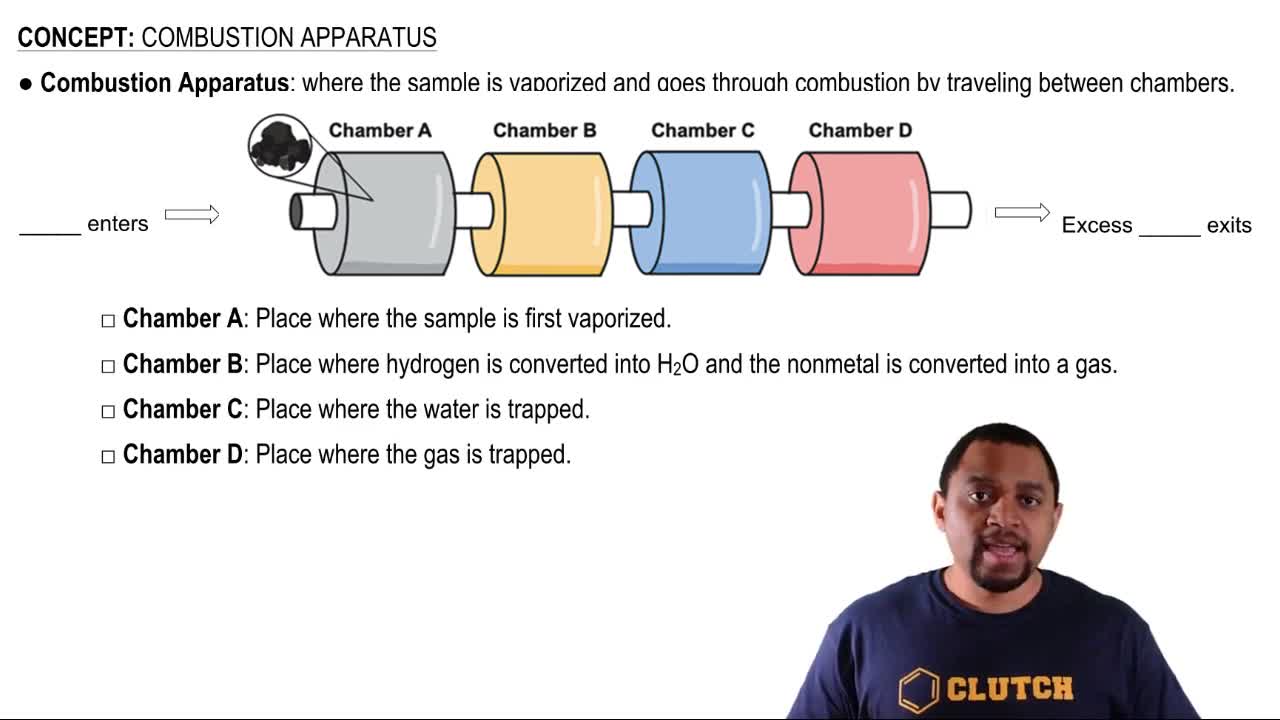Here are the essential concepts you must grasp in order to answer the question correctly.
Bond Dissociation Energy
Bond dissociation energy (BDE) is the energy required to break a bond in a molecule, resulting in the formation of separate atoms. It is a crucial concept in thermochemistry as it helps predict the energy changes during chemical reactions. In the context of combustion, knowing the BDEs of the bonds in the reactants and products allows for the calculation of the overall energy change, or heat of combustion.
Recommended video:
Heat of Combustion
The heat of combustion is the amount of energy released when a substance undergoes complete combustion with oxygen. It is typically expressed in kilojoules per mole (kJ/mol). This value is essential for understanding the energy content of fuels and is calculated by considering the energy required to break bonds in the reactants and the energy released when new bonds are formed in the products.
Recommended video:
Combustion Reaction of Ethane
The combustion reaction of ethane (C2H6) involves its reaction with oxygen (O2) to produce carbon dioxide (CO2) and water (H2O). The balanced equation for this reaction is C2H6 + 7/2 O2 → 2 CO2 + 3 H2O. Understanding this reaction is vital for calculating the heat of combustion, as it allows for the identification of the bonds that are broken and formed during the process, which directly influences the energy changes involved.
Recommended video:
 Verified step by step guidance
Verified step by step guidance


